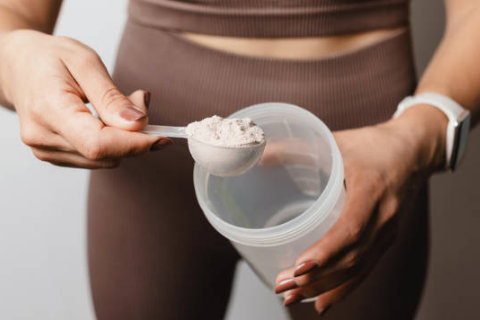Creatine is a popular supplement known for boosting strength, explosive power, and workout performance. It can enhance your physical performance, reduce inflammation, and provide more energy to make your workouts more effective.
With all these benefits, you might be tempted to take creatine regularly—especially if you’re an athlete. But is it safe?
Is It Safe to Take Creatine Daily?
Short-term use of creatine is considered safe. Most studies on creatine involve participants taking the supplement for just 5 to 7 days. However, taking creatine daily for up to 12 weeks has been shown to support long-term muscle strength and growth.
Experts say it’s generally safe to take a high dose (25 grams per day) of creatine for up to 14 days. Others suggest that lower daily doses (4 to 5 grams) can be safely used for up to 18 months.

Benefits of Regular Creatine Use
Taking creatine consistently may offer several benefits:
-
Provides your muscles with more energy, helping them grow bigger and stronger with proper training
-
Improves overall workout performance, especially during explosive, high-intensity activities like weightlifting, rowing, soccer, or cycling
-
Helps muscles recover faster and reduces post-workout soreness
-
Increases water content in muscle cells, which supports growth and hydration
Creatine isn’t just for athletes—it can also help older adults improve muscle strength and support overall health.
When to Take Creatine
It might not matter whether you take creatine before or after your workout. What matters more is consistency. As long as you keep your creatine levels up, your muscles will have access to it when needed.
If you’re recovering from a workout, taking creatine may help reduce muscle soreness and speed up repair.
Potential Side Effects
Creatine has relatively few side effects. The most common one is weight gain, usually due to water retention—creatine pulls water into your muscle cells.
This temporary increase in water weight may happen in the first week or two of use and often goes away on its own.
Less common side effects may include:
-
Diarrhea
-
Feeling overheated, especially in warm environments
-
Muscle cramps or stiffness
-
Nausea
Tips for Taking Creatine
If creatine is right for you, staying consistent is key. Taking it daily—even on rest days—helps maintain levels in your body for muscle growth, energy, and recovery.
Staying hydrated can also reduce the risk of side effects.
Creatine doesn’t interact with many medications or supplements. However, some evidence suggests that caffeine might reduce its effectiveness, so you may want to avoid combining the two.
As with any supplement, talk to your healthcare provider before starting creatine to ensure it’s safe for you—especially if you have any health conditions or take other medications.

